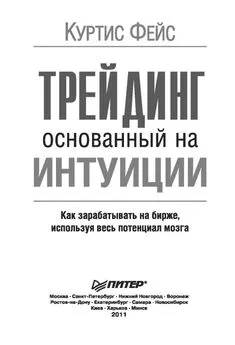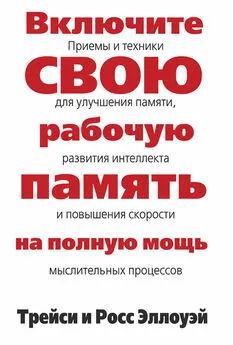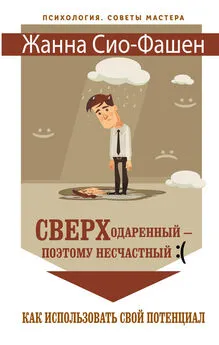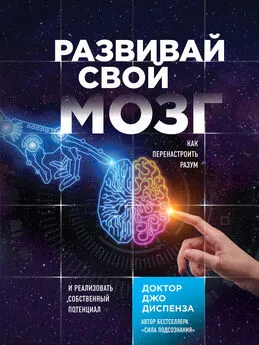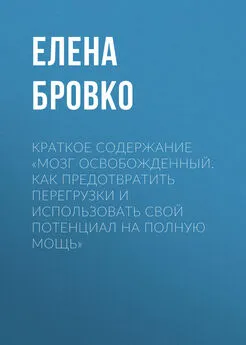Тео Компернолле - Мозг освобожденный. Как предотвратить перегрузки и использовать свой потенциал на полную мощь
- Название:Мозг освобожденный. Как предотвратить перегрузки и использовать свой потенциал на полную мощь
- Автор:
- Жанр:
- Издательство:Array Литагент «Альпина»
- Год:2015
- Город:Москва
- ISBN:978-5-9614-3976-1
- Рейтинг:
- Избранное:Добавить в избранное
-
Отзывы:
-
Ваша оценка:
Тео Компернолле - Мозг освобожденный. Как предотвратить перегрузки и использовать свой потенциал на полную мощь краткое содержание
Мозг освобожденный. Как предотвратить перегрузки и использовать свой потенциал на полную мощь - читать онлайн бесплатно полную версию (весь текст целиком)
Интервал:
Закладка:
180
Making choices impairs subsequent self-control: A limited-resource account of decision making, self-regulation, and active initiative.Vohs, Kathleen D.; Baumeister, Roy F.; Schmeichel, Brandon J.; Twenge, Jean M.; Nelson, Noelle M.; Tice, Dianne M. Journal of Personality and Social Psychology, Vol. 94(5), May 2008, pp. 883–898.
Self-control: limited resources and extensive benefits. Jessica Alquist, Roy F. Baumeister.Wiley Interdisciplinary Reviews: Cognitive Science. Volume 3, Issue 3, pp. 419–423, May/June 2012.
181
Motivation, personal beliefs, and limited resources all contribute to self-control. Kathleen D. Vohs, Roy F. Baumeister, Brandon J. Schmeichel Journal of Experimental Social PsychologyVolume 48, Issue 4, Jule 2012, pp. 943–947.
182
Stress and open-office noise. Evans, Gary W.; Johnson, Dana. Journal of Applied Psychology, Vol. 85(5), Oct 2000, 779–783.
183
Self-control relies on glucose as a limited energy source: Willpower is more than a metaphor.
Gailliot, Matthew T.; Baumeister, Roy F.; DeWall, C. Nathan; Maner, Jon K.; Plant, E. Ashby; Tice, Dianne M.; Brewer, Lauren E.; Schmeichel, Brandon J. Journal of Personality and Social Psychology, Vol. 92(2), Feb 2007, 325–336.
184
Self-Control Without a “Self”? Common Self-Control Processes in Humans and Dogs Holly C. Miller, Kristina F. Pattison, C. Nathan DeWall, Rebecca Rayburn-Reeves and Thomas R. Zentall. Psychological Science, April 2010, vol. 21 no. 4, pp. 534–538.
185
Cognitive neuroscience of selfregulation failure. Todd F. Heatherton, Dylan D. Wagner, Trends in Cognitive Sciences, Volume 15, Issue 3, March 2011, pp. 132–139.
Dietary Restraint Violations Influence Reward Responses in Nucleus Accumbens and Amygdala.
Kathryn E. Demos, William M. Kelley, and Todd F. Heatherton. Journal of Cognitive Neuroscience. August 2011, Vol. 23, No. 8, pp. 1952–1963.
186
The Morning Morality Effect. The Influence of Time of Day on Unethical Behavior. Maryam Kouchaki. Isaac H. Smith. Psychological Science, October 28 2013.
187
http://www.linkedin.com/today/post/article/20130402091536-204068115-things-i-carry-smart-phonei-prefer-a-brilliant-assistant
188
http://www.jumio.com/2013/07/americans-cant-put-down-their-smartphones-even-during-sex/
189
McCann Advertising company campaign for tising company7/americ
http://www.mccann.com.au/project/phubbing-a-word-is-born/ http://www.youtube.com/watch?v=ZSOfuUYCV_0
190
Can you connect with me now? How the presence of mobile communication technology influences face-to-face conversation quality. Andrew K. Przybylski and Netta Weinstein. Journal of Social and Personal Relationships, July 19, 2012.
191
Emberson L. and Goldstein M., “Overheard Cell-Phone Conversations: When Less Speech is More Distracting,” Psychological Science. The effect of speech and speech intelligibility on task performance. N. Venetjokia, A. Kaarlela-Tuomaalaa, E. Keskinenb & V. Hongistoa. Ergonomics. Volume 49, Issue 11, 2006.
192
Indicative research, not very scientific, done amongst clients of the Gazelle trade-in company. Consumers Crave iPhone® More Than Facebook, Sex, According to Gazelle. www.prnewswire.com/news-releases/consumers-craveiphone-more-than-facebook-sex-according-to-gazelle-159430685.html
193
Stress: Friend and Foe. Theo Compernolle. Synergo.
194
The Machine Zone: This Is Where You Go When You Just Can’t Stop Looking at Pictures on Facebook. What an anthropologist’s examination of Vegas slot machines reveals about the hours we spend on social networks. ALEXIS C. MADRIGALJUL. The Atlantic. 31, 2013.
195
http://pewinternet.org/Commentary/2012/February/Pew-Internet-Mobile.aspx
196
http://www.webmd.com/mentalhealth/features/when-technologyaddiction-takes-over- your-life
197
Critical review. The Cell Phone in the Twenty-First Century: A Risk for Addiction or a Necessary Tool? Xavier Carbonell, Ursula Oberst, Marta Beranuy. Principles of Addiction, First Edition, 2013, 901–909. http://site.blanquerna.url.edu/condesa/wp-content/uploads/2013/07/The-Cell-Phonein-the-Twenty-First-Century.pdf
198
Prevalence of internet addiction in the general population: results from a German population-based survey. Kai W. Müller, Heide Glaesmer, Elmar Brähler, Klaus Woelfling, Manfred E.Beutel. Behaviour & Information Technology.
Adolescent Internet Addiction: Testing the Association Between Self-Esteem, the Perception of Internet Attributes, and Preference for Online Social Interactions. Giulia Fioravanti, Ph.D., Davide Dèttore, Ph.D., and Silvia Casale, Ph.D. Cyberpsychology, Behavior, and Social Networking. Volume 15, Number 6, 2012.
Behavioral Addictions: An Overview. Reef Karim D.O. & Priya Chaudhri Ph.D. Journal of Psychoactive Drugs.Volume 44, Issue 1, 2012, pp. 5–17.
Confirmation of the Three-Factor Model of Problematic. Internet Use on Off-Line.
Adolescent and Adult Samples. Beatrix Koronczai, M.A and others. Cyberpsychology, Behavior, and Social Networking. Volume 14, Number 11, 2011, pp. 657.
Internet Over-Users’ Psychological Profiles: A Behavior Sampling Analysis on Internet Addiction. Leo Sang-Min Whang, Ph.D.,1 Sujin Lee, Ph.D.,2 and Geunyoung Chang, M.A.1. Cyberpsychology & Behavior Volume 6, Number 2, 2003.
Modification in the Proposed Diagnostic Criteria for Internet Addiction. Keith W. Beard, Psy.D., and Eve M. Wolf, Ph.D. Cyberpsychology & Behavior Volume 4, Number 3, 2001.
An Outcome Evaluation Study on Internet Addiction. Seher Ozcan. Sahin Gokcearslan AWERProcedia Information. Technology & Computer Science. [Online]. 2013, 3, pp. 790–795. Available from: http://www.worldeducationcenter.org/index.php/P-ITCSP.
http://www.world-education-center.org/index.php/P-ITCS/article/view/1849/1637
199
Adolescent Internet Addiction: Testing the Association Between Self-Esteem, the Perception of Internet Attributes, and Preference for Online Social Interactions. Giulia Fioravanti, Ph.D., Davide Dèttore, Ph.D., and Silvia Casale, Ph.D. Cyberpsychology, Behavior, and Social Networking. Volume 15, Number 6 2012.
200
Should DSM-V Designate “Internet Addiction” a Mental Disorder? Ronald Pies, MD. Psychiatry (Edgmont). 2009 February; 6(2); pp. 31–37. http://www.ncbi.nlm.nih.gov/pmc/articles/PMC2719452/
201
Оригинальный текст: http://psychclassics.yorku.ca/Pavlov/.
202
Другой пример – многочисленные когнитивные искажения и эвристики, которые делают нас предсказуемо нерациональными (Predictably Irrational, Ariely D., Harper Collins, 2008). Но они были чрезвычайно полезны для первобытных людей: помогали в мире, где скорость реакций была гораздо важнее для выживания, чем способность к глубоким размышлениям. (Over breinblinddoeken en ezelsbreinbrugjes. Theo Compernolle. Marketing Jaarboek. pp. 52–61. Pimms NV. 2011.) См. также: Adaptive memory: Ancestral priorities and the mnemonic. Value of survival processing. James S. Nairne, Josefa N.S. Pandeirada. Cognitive Psychology 61 (2010) 1–22.
203
“A Pace Not Dictated by Electrons”: An Empirical Study of Work Without Email. Gloria J. Mark, Stephen Voida, Armand V. Cardello. Proceedings of CHI 2012.
204
The effect of cognitive style and curiosity on information task multitasking. Angela Manyangara Elaine G. Toms 10 Proceeding of the third symposium on Information interaction in context. ACM New York, NY, USA 2010.
The Effect of Repeated Exposure to Unpredictable Reward on Dopamine Neuroplasticity. Sarah Ann Mathewson. Department of Psychology – Master theses. http://hdl.handle.net/1807/18915
Novelty Seekers and Drug Abusers Tap Same Brain Reward System, Animal Studies Show. By Robert Mathias. http://archives.drugabuse.gov/nida_notes/nnvol10n4/Novelty.html
Novelty Seekers and Drug Abusers Tap Same Brain Reward System, Animal Studies Show. By Robert Mathias. January 14, 2009. http://archives.drugabuse.gov/nida_notes/nnvol10n4/Novelty.html
205
http://www.intersperience.com/news_more.asp?news_id=39
206
A nation addicted to smartphones http://media.ofcom.org.uk/2011/ 08/04/a-nation-addicted-to-smartphones/
207
Tim Locke, Nasty Bugs Lurking on Your Cell Phone. http://www.medscape.com/viewarticle/751569
208
Turel, Ofir; Serenko, Alexander; and Bontis, Nick, “Blackberry Addiction: Symptoms and Outcomes” (2008). AMCIS 2008 Proceedings. Paper 73. http://aisel.aisnet.org/amcis2008/73. The psychological roots of overconsumption. N. Hagens. in Fleeing Vesuvius. R. Douthwaite, G. Fallon and R. Heinberg p. 339 (название этой статьи отчасти вводит в заблуждение, поскольку она содержит очень информативный материал о зависимостях).
Internet addiction: a 21st century epidemic? Dimitri A Christakis. BMC Medicine 2010, 8:61. Или http://www.biomedcentral.com/1741-7015/8/61
Glücksspiel– und Internetsucht. Review und Forschungsagenda. K. Wolfling, M. Buhler, T. Leménager, C. Morsen and K. Mann. Der Nervenarzt. Volume 80, Number 9, 1030–1039.
Treatment of internet addiction. Huang X.Q., Li M.C., Tao R. Curr Psychiatry Rep. Oct 2010; 12(5); pp. 462–470.
“Overcoming Email Addiction: Understanding the 'Leave Me Alone!’ Approach”Gupta? Ashish; Sharda, Ramesh; and Greve, Robert A., (2009). AMCIS 2009 Proceedings. Paper 128. http://aisel.aisnet.org/amcis2009/128
Should DSM-V Designate “Internet Addiction” a Mental Disoder? Ronald Pies. Psychiatry (Edgmont). February 6, 2009; 6(2), pp. 31–37.
The Role of Internet User Characteristics and Motives in Explaining Three Dimensions of Internet Addiction. Junghyun Kim, Paul M. Haridakis, Journal of Computer-Mediated Communication. Volume 14, Issue 4, July 2009, pp. 988–1015.
Flisher, C. (2010), Getting plugged in: An overview of Internet addiction. Journal of Paediatrics and Child Health, 46: pp. 557–559.
209
‘Liking’ and ‘wanting’ food rewards: brain substrates and roles in eating disorders. Berridge, K.C., Physiology & Behavior, 97(5), 537–550, 2009.
Building a neuroscience of pleasure and well-being. Psychology of Well-Being: Theory Research and Practice. Berridge, K.C. & Kringelbach, M.L. http://www.psywb.com/content/1/1/3, 2011.
210
Opioids for hedonic experience and dopamine to get ready for it. M. Flavia Barbano and Martine Cador. PSYCHOPHARMACOLOGY. Volume 191, Number 3 (2007), pp. 497–506.
211
Positive Reinforcement Produced By Electrical Stimulation Of Septal Area And Other Regions Of Rat Brain. Olds, James; Milner, Peter. Journal Of Comparative And Physiological Psychology, Vol. 47(6), Dec 1954, pp. 419–427.
Читать дальшеИнтервал:
Закладка:

